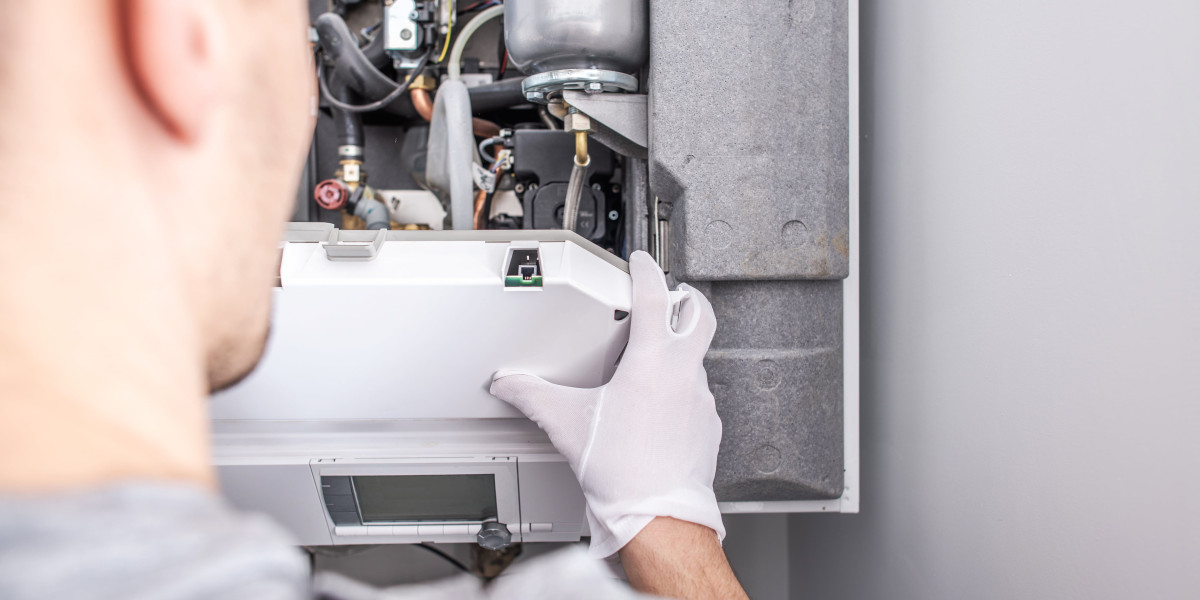A gas safety certificate is an essential document for any owner of the property that has a gas supply. This document details the results of an inspection carried out by an engineer from the Gas Safe engineer.
 It also mentions if they passed or failed the inspection. It also states whether the appliances and installations passed or failed the inspection.
It also mentions if they passed or failed the inspection. It also states whether the appliances and installations passed or failed the inspection.Legal Requirements
A Gas Safety Certificate is a legal requirement in many regions and is a vital document for landlords and homeowners alike. It provides a valuable service in protecting the safety of the occupants as well as protecting the owners from liability that can arise out of neglecting to maintain their appliances and infrastructure. It is also beneficial when it comes to lettings or sales of property because it can show a commitment to security and speed up the process by removing the need for additional inspections.
The CP12 certificate includes a number of crucial information, including the date, name, and address of the engineer who carried out the inspection. It also includes a list of the appliances and flues that were inspected and a score of their condition (pass/fail). Before allowing an engineer to access their property, landlords should check the identity of their Gas Safe registered engineer to make sure that they're properly certified, insured and trained.
Landlords are responsible for all appliances and pipework within their buildings. This includes the ones owned and occupied by tenants, as well communal areas and appliances used by multiple tenants. They must also provide an original copy of their Gas Safety Record to all tenants at the start of each lease. It is recommended to keep a record of the previous certificates and inspections dates to be able to refer back to them in the future.
Regardless of whether they're the original owner or not, landlords must arrange and pay for the Gas Safe Certificate before they put their property on the market. This will ensure prospective buyers that the house will be safe for them to live in, and accelerate the conveyancing process.
Landlords must keep a log and make sure that their Gas Safety Certificates are in good condition before the start of each tenancy. If they employ a management agency to take care of their maintenance, ensure that the contract clearly outlines who is responsible for scheduling annual checks and for paying for them. It's also an excellent idea for landlords to take pictures of their gas installations and appliances prior to each check, making it easier to trace the history of each one.
Peace of Mind
Although it is not a legal requirement for homeowners gas safety inspections, they are still highly recommended. This ensures that your home's gas appliances and installations are safe to use and reduces the risk of costly problems in the future. It also helps protect against fires and other health hazards that could result from defective appliances, such as carbon monoxide poisoning.
During the inspection, an engineer will inspect your gas appliances, installations, and check for things like gas leaks, proper venting, and appliance performance. They will then complete an extensive report of their findings and issue you with an official gas safety certificate. The certificate will include the address of your residence, the name and contact details of the engineer as well as the date of the check and a listing of the gas appliances that were inspected. The engineer will ask for any appliances that are deemed to be unsafe to be disconnected and give you suggestions for repairs.
If you're a homeowner thinking of selling your house in the near future having an approved gas safety certificate can help accelerate the process by providing potential buyers with peace of assurance. This will show that you are concerned about the safety of your home's occupants and are committed to keeping your home's systems in good and in good working.
As landlords, you are legally required to have your gas appliances, flues and pipework inspected by a Gas Safe Registered engineer on an annual basis. This is to safeguard tenants from gas leaks as well as carbon dioxide poisoning fires that can cause severe damage, and even death.
Having a gas safety certificate is not just a sign of your commitment to safeguarding the health of your tenant, but it also makes your business more attractive to prospective tenants. If there are any issues it is possible to fix them quickly, reducing the risk of liability claims or accidents.
It is essential to inform your tenants to let them know the date of the inspection and the method they can get the report. This will make sure that your tenants know about any possible hazards and are less likely than not to attempt to hide the dangers, which could put their safety at risk.
Insurance
Homeowners aren't legally required to have gas inspections carried out by a qualified engineer, but it's recommended. Having your appliances regularly inspected by a trained professional can help you recognize any potential issues before they become serious, putting you or your family in danger. It also can reveal possible dangers, such as carbon monoxide. It is an extremely poisonous gas that is odourless and smellless that can be a problem in your home if appliances are not properly maintained.
Landlords are legally obliged to have their property examined for gas safety by a licensed engineer and receive a CP12 (Landlord Certificate) as part of their legal obligations when renting out a property. The certificate is proof that the flues and appliances in their properties are safe to use and are in good working order.
A CP12 is a standard black and yellow form which outlines the specifics of the inspection, including the date and the name of the gas engineer and the Gas Safe Register number. It will also include an inventory of the appliances that have been examined and the engineer will also note any issues or concerns they have discovered. The engineer will indicate on the CP12 that the appliance is unsafe, and request it be disconnected immediately.
The CP12 will specify if maintenance is required to ensure the appliance is safe for use. This information will also be recorded. The engineer will generally recommend that any gas appliance serviced is done in conjunction with the annual CP12 inspection, to ensure that the appliances are in good in good condition and are safe to be used.
You can save on insurance costs by having your gas safety certificate on hand. Some insurers require that you have a CP12 before they will cover you. Being on top of the inspections and rectifying any issues promptly will help you avoid expensive repairs and help speed up any insurance claims you may have to file in future.
Tenant Requirements
While landlords are legally responsible for the safety of gas in their rental properties, tenants have a right to making sure that the appliances in the rental property are safe to use. Tenants can reduce the risk of accidents by asking their landlord for an annual gas safety certificate and reminding them that these checks should be carried out when required.
The gas Safety certificate homeowner safety certificate is a vital document that identifies whether gas appliances and flues that are in your rental property are appropriate for use and safe for. It contains an inventory of the gas appliances that have been checked by an Gas Safe registered engineer, an assessment of each appliance's condition (either "pass" or "fail'), and a date for when the next inspection is due. It also lists the name and number of the Gas Safe registered engineer who completed the inspection as well as the address of the home inspected.
Landlords must provide the certificate to tenants currently in the property within 28 days of the annual service, and to new tenants prior to the start of their tenancy. Landlords must also keep a copy of the gas safety certificate at the rental property.
A valid gas safety certificate can be helpful for a homeowner when it comes to the sale of their property because it proves that the home has been inspected and is free from dangerous gas appliances and fittings. In addition, a homeowner could find it easier to obtain insurance for their property when they have an approved gas safety certificate.
Some landlords are insecure about the space they rent and refuse to permit maintenance or gas safety inspections. In cases where the tenant and landlord cannot reach an agreement and the landlord is required to take all reasonable steps to comply with the Gas Safety Installation and Use Regulations 1998, including repeatedly attempting to gain access and writing to tenants stating that the safety checks are required by law for everyone's safety. If the landlord is unable to gain access to the property to conduct a safety check or to conduct a safety inspection, they may need to seek legal advice.




